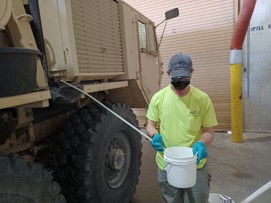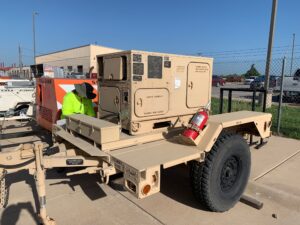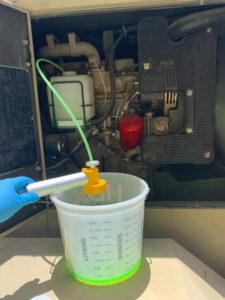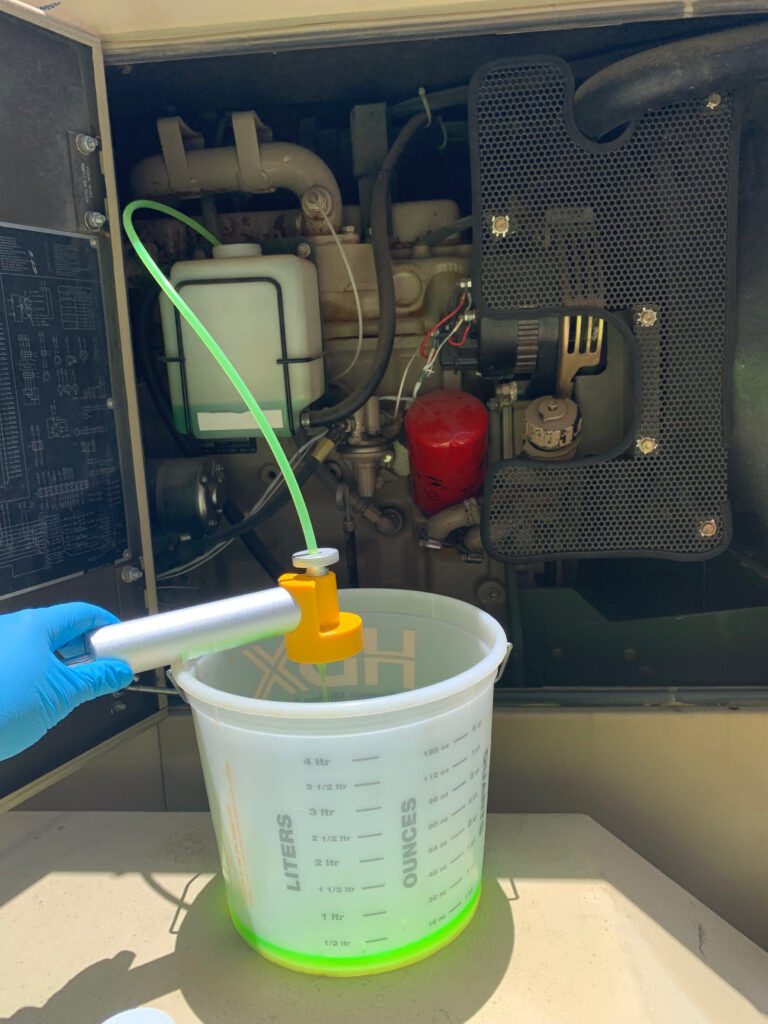KGS provided support for Fort Sill by investigating its antifreeze disposal program to reduce Fort Sill’s hazardous waste footprint. In February 2022, KGS completed the first round of motorpool visits and sampling. We noted the types of equipment and vehicles present at each motorpool, the type of antifreeze (recycled or new) used, and the amount of waste antifreeze generated.
KGS focused on motorpools that serviced older equipment. These items contain copper/brass radiators with lead solder. We sampled drums of used antifreeze, new pre-diluted antifreeze, new antifreeze concentrate, and recycled antifreeze from various motorpools. Following these sampling efforts, the environmental 90-day storage was sampled and field tests were conducted for Nitrite, Molybdate, pH, Glycol percentage, and freezing point. This was done to establish if there is a correlation between the high lead levels and field test results. We narrowed down which motorpools continually have high levels of lead and a field test was recently implemented for electrolysis of antifreeze to understand if the antifreeze and electrical system of some of the older vehicles and equipment contribute to higher corrosion rates of the lead solder in the radiators.
Our sampling events through August 2022 have indicated that lead is coming from older Humvees and generators with copper/brass radiators. Although, there have been multiple instances where aluminum radiators have seen significate lead in antifreeze. We will complete our analysis on this in December.
In addition to the antifreeze disposal program support, KGS provided stormwater support by developing Fort Sill’s MS4 annual report and assisting Fort Sill’s Environmental Quality Division with updating and implementing their IDDE Plan. KGS conducted a total of three site visits to gather background information on Fort Sill’s MS4 infrastructure and daily processes. The site visits provided an opportunity to sit down with Fort Sill’s EQD personnel and work through the requirements of their MS4 permit and specifically the requirements of their IDDE Plan. These regular meetings allowed for beneficial discussions about updating documents, creating new educational/training resources, and revising on-site processes and procedures to make implementing the MS4 requirements easier for EQD personnel. Additionally, KGS updated the Fort Sill stormwater website with helpful program and contact information.




